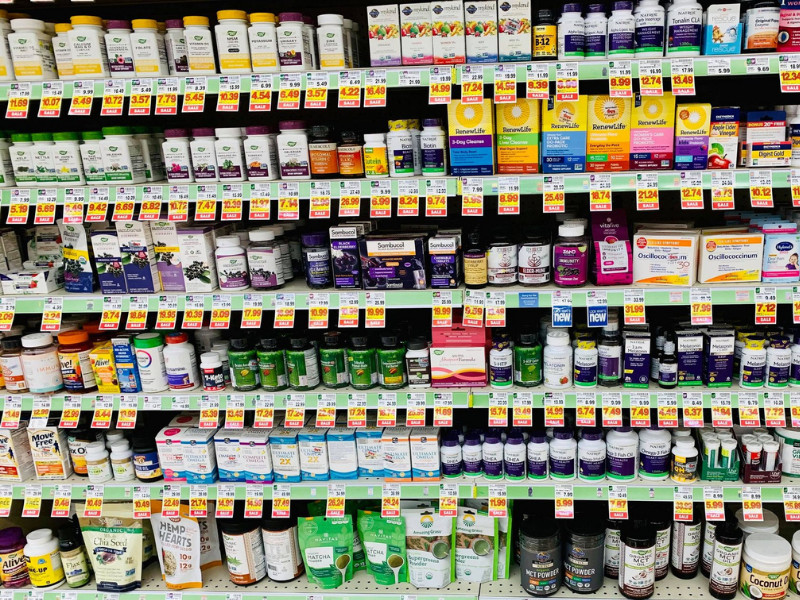Prepping is important, but don’t forget the supplements. When SHTF, you may not have access to the same healthy foods and nutrients that you’re used to. That’s why it’s important to stockpile the best supplements possible. Here are some of the best supplements to stockpile for when SHTF:
1. Multivitamins
Multivitamins are a great way to ensure that you’re getting all the nutrients you need, even when your diet is less than perfect. When SHTF, you may not have access to fresh fruits and vegetables, so a good multivitamin can help fill in the gaps.
What should a multivitamin have in it?
Look for a multivitamin that contains:
- Vitamins A, C, D, and E
- B vitamins
- Calcium
- Magnesium
- Zinc
2. Protein Powder
Protein powder is a great way to get an extra boost of protein, especially if you’re not getting enough from your diet. Protein is essential for muscle growth and repair, so it’s important to make sure you’re getting enough.
3. Omega-3 Supplements
Omega-3 supplements are a great way to get the benefits of omega-3 fatty acids, even if you’re not eating fish. Omega-3s are important for heart health, brain health, and more.
4. Vitamin D
Vitamin D is an important nutrient for bone health. It’s also been linked to a number of other health benefits, such as reducing the risk of cancer and heart disease. If you don’t get enough sun exposure, a vitamin D supplement can help you get the vitamin D you need.
4. Calcium
Calcium is another important nutrient for bone health. It’s also important for muscle function and nerve function.
5. Fish Oil
Fish oil is a great way to get the benefits of omega-3 fatty acids. It’s also been linked to a number of other health benefits, such as reducing the risk of heart disease and stroke.
6. Probiotics
Probiotics are live microorganisms that can offer a number of health benefits. They’ve been linked to better gut health, a stronger immune system, and more. I
7. Herbal Supplements
There are a number of herbal supplements that can offer a range of health benefits. Some herbs have been linked to better heart health, while others may help with stress or anxiety. If you’re interested in trying herbal supplements, talk to your doctor first to make sure they’re right for you.
8. Cranberry
Cranberry supplements are a great way to get the benefits of berries, even if you don’t like the taste of cranberry juice. Cranberries are a good source of antioxidants and have been linked to a number of health benefits, including better urinary tract health.
9. Krill Oil
Krill oil is a good source of omega-3 fatty acids. It’s also been linked to a number of other health benefits, including reducing the risk of heart disease and stroke. If you don’t eat fish, krill oil can be a good alternative.
10. Magnesium
Magnesium is an important mineral for health. It’s involved in over 300 biochemical reactions in the body and is essential for a number of functions, including muscle function, nerve function, and blood sugar control.
11. Iron
Iron is an important nutrient for health. It’s essential for making hemoglobin, which carries oxygen in the blood. Iron is also important for immune function and energy metabolism.
12. Iodine
Iodine is an important nutrient for health. It’s essential for making thyroid hormone, which is involved in a number of important functions, including metabolism and growth.
13. Selenium
Selenium is an important nutrient for health. It’s essential for making antioxidant enzymes, which protect the body from damage. Selenium is also important for immune function and thyroid health.

What are supplements?
Supplements are nutrients that you can take to improve your health. They come in many forms, such as pills, powders, and liquids. You can find them at most drugstores and grocery stores.
Why should I take supplements?
You may want to take supplements if you’re not getting enough of certain nutrients from your diet. For example, if you’re not eating enough fruits and vegetables, you may want to take a vitamin C supplement.
What are the best supplements to take?
The best supplements to take depend on your individual needs. If you’re looking for general health benefits, a multivitamin and fish oil supplement are a good place to start. If you have a specific health concern, such as heart disease or osteoporosis, there are supplements that can help. Talk to your doctor about which supplements are right for you.
Can I get too much of a certain nutrient from supplements?
Yes, it’s possible to get too much of a nutrient from supplements. This can happen if you take more than the recommended amount or if you take multiple supplements that contain the same nutrient. Taking too much of a nutrient can lead to problems, such as stomach pain, diarrhea, and nausea. It’s important to talk to your doctor before taking any supplements, to make sure you’re taking the right amount.
What can I do if I don’t have access to supplements?
If you don’t have access to supplements, there are other ways to get the nutrients you need. You can eat foods that are rich in the nutrient you’re lacking. For example, if you’re low in iron, you can eat foods like spinach, red meat, and beans.
The best supplements to stockpile depend on your individual needs, but some of the most important ones include protein powder, omega-3 supplements, vitamin D, calcium, and fish oil. These are all essential nutrients that can offer a range of health benefits. If you’re not getting enough of them from your diet, a supplement can help make up the difference. What do you think are the best supplements to stockpile?
More on Stockpiling
How to Build a Stockpile for $10 a Week
How to Prepare for Food Shortages
Stockpiling Medication a Guide to Help You
Prepping Vs. Hoarding
Back to School Sales What You Need to Stockpile





